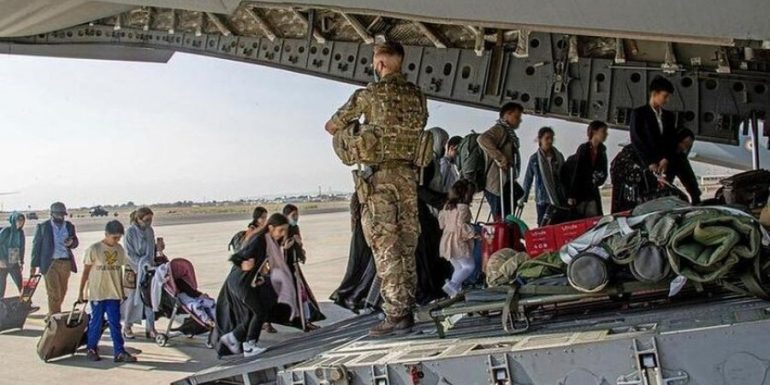Forty people who wanted to leave Afghanistan "illegally" have been prevented from leaving and several women among them remain in custody until a man from their family goes to pick them up, a senior Taliban official said.
The group tried to leave Afghanistan on Monday with a flight departing from Mazar-i-Sharif in the north of the country, Taliban government spokesman Zabihullah Mujahid said on his Twitter account last night.
"Forty people were arrested (…) who wanted to go abroad by air," he said.
Most of them were released, but some women "remain in custody as no male relatives have yet come to accompany them," he added.
It was not immediately clear who chartered the plane.
More than 120.000 people fled Kabul in late August after the Taliban returned to power in Afghanistan.
Among them are diplomats and foreign nationals, as well as tens of thousands of Afghans at risk, mainly because they had collaborated with international coalition forces in Afghanistan.
Since then, some countries and international non-governmental organizations have continued to charter planes to help Afghans flee the country. However, the Taliban authorities are increasingly opposed to this practice.
Tens of thousands of Afghans continue to want to flee the country, fearing retaliation from the Taliban.
They ensure that anyone wishing to leave can do so once they have the appropriate documents, including a visa for their final destination.
However, obtaining the required documents in a country where few embassies remain open is extremely difficult.
The Taliban government also called on vocationally trained Afghans to stay in the country to help rebuild.
Although the Taliban say they have modernized since taking office in 1996 and 2001, they have gradually excluded women from public life since returning to power in August, raising concerns in the international community. .
Women are therefore largely excluded from public sector jobs, are not allowed to travel long distances without being accompanied by a man from their family, and girls' secondary schools remain largely closed.
In recent weeks, Afghan activists who have been protesting regularly in Kabul and other cities to defend women's rights have denounced the growing crackdown on protesters.
Source: RES-EAP
